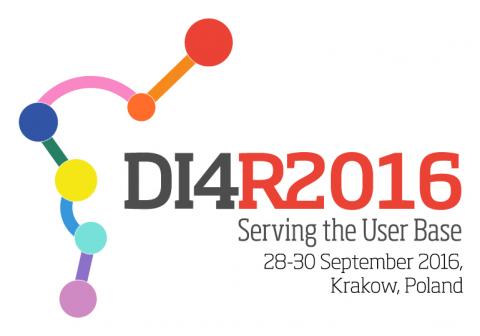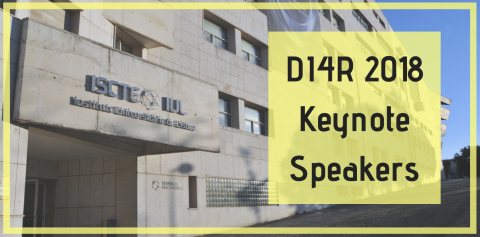
The DI4R 2016 conference is co-organised by EGI, EUDAT, GÉANT, OpenAIRE and RDA Europe, and is hosted by ACC Cyfronet AGH, Kraków's academic computing centre.
Europe's leading e-infrastructures invite all researchers, developers and service providers for three days of brainstorming and discussions at the Digital Infrastructures for Research event (28-30 September 2016).
The event is designed with research communities in mind and aims to foster broader adoption of digital infrastructure services and promote user-driven innovation. The Call for Participation will open in early April with an invitation to all researchers, developers and service providers to submit abstracts for presentations, training sessions, workshops and demonstrations,
"Krákow will be the home of the first joint event organised by the major European e-Infrastructure initiatives," says Tiziana Ferrari, technical director of the EGI Foundation. "We will join efforts to support the needs of European researchers and international collaborations and EGI is proud of having been one of the main promoters of this new series of events."
"This event represents an important step towards greater collaboration between e-Infrastructures, which is very much required by research communities who want to be able to access network, data and computing resources in a seamless way” adds Damien Lecarpentier, EUDAT2020 project director.
"The DI4R 2016 will bring together researchers and infrastructure providers to increase mutual understanding and ultimately ensure that researchers can really influence the services developed by the infrastructure providers," says Valentino Cavalli, general manager of the GÉANT Association.
"Open research infrastructures are stepping stones for new products and services," says Tony Ross-Hellauer, OpenAIRE scientific manager. "We encourage all researchers to join our event to discuss open research infrastructures that have a long-term impact on the European scientific community."
Peter Wittenburg, executive director of RDA Europe adds that "digital infrastructures providing services from basic network, CPU and storage up to those populating the dynamic knowledge integration will determine our ability to extract knowledge from the data floods."



